
Alexander III of Macedon, commonly known as Alexander the Great, was a king of the ancient Greek kingdom of Macedon. He succeeded his father Philip II to the throne in 336 BC at the age of 20, and spent most of his ruling years conducting a lengthy military campaign throughout Western Asia and Egypt. By the age of thirty, he had created one of the largest empires in history, stretching from Greece to northwestern India. He was undefeated in battle and is widely considered to be one of history's greatest and most successful military commanders.

Macedonia, also called Macedon, was an ancient kingdom on the periphery of Archaic and Classical Greece, and later the dominant state of Hellenistic Greece. The kingdom was founded and initially ruled by the royal Argead dynasty, which was followed by the Antipatrid and Antigonid dynasties. Home to the ancient Macedonians, the earliest kingdom was centered on the northeastern part of the Greek peninsula, and bordered by Epirus to the west, Paeonia to the north, Thrace to the east and Thessaly to the south.
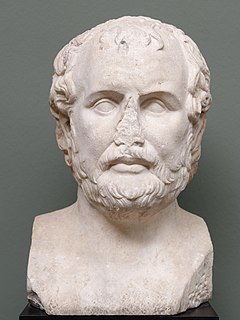
Philip II of Macedon was the king (basileus) of the ancient kingdom of Macedonia from 359 BC until his death in 336 BC. He was a member of the Argead dynasty, founders of the ancient kingdom, and the father of Alexander the Great.

Olympias was the eldest daughter of king Neoptolemus I of Epirus, the sister of Alexander I of Epirus, the fourth wife of Philip II, the king of Macedonia and the mother of Alexander the Great. She was extremely influential in Alexander's life and was recognized as de facto leader of Macedon during Alexander's conquests. After her son's death, she fought on behalf of Alexander's son Alexander IV, successfully defeating Adea Eurydice. After she was finally defeated by Cassander, his armies refused to execute her, and he finally had to summon family members of those Olympias had previously killed to end her life. According to the 1st century AD biographer, Plutarch, she was a devout member of the orgiastic snake-worshiping cult of Dionysus, and he suggests that she slept with snakes in her bed.

Alexander I of Macedon, known with the title Philhellene, was the ruler of the ancient Kingdom of Macedon from c. 498 BC until his death in 454 BC. He was succeeded by his eldest son, Alcetas II.
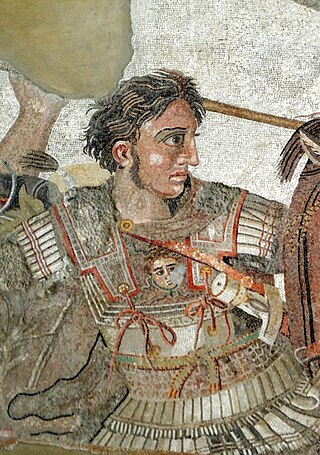
The Wars of Alexander the Great were a series of conquests that were carried out by Alexander III of Macedon from 336 BC to 323 BC. They began with battles against the Achaemenid Persian Empire, then under the rule of Darius III of Persia. After Alexander's chain of victories against Achaemenid Persia, he began a campaign against local chieftains and warlords that were stretched as far from Greece as the region of Punjab in South Asia. By the time of his death, he was serving as emperor over most regions of Greece and the conquered Achaemenid Empire ; he did not, however, manage to conquer the Indian subcontinent in its entirety as was his initial plan. Despite his military accomplishments, Alexander did not provide any stable alternative to the rule of the Achaemenid Empire, and his untimely death threw the vast territories he conquered into a series of civil wars, commonly known as the Wars of the Diadochi.
Mardonius was a leading Persian military commander during the Persian Wars with Greece in the early 5th century BC who died at the Battle of Plataea.

The Hellenistic period spans the period of Mediterranean history between the death of Alexander the Great in 323 BC and the emergence of the Roman Empire, as signified by the Battle of Actium in 31 BC and the conquest of Ptolemaic Egypt the following year. The period of Greece prior to the Hellenistic era is known as Classical Greece, while the period afterwards is known as Roman Greece. The Ancient Greek word Hellas was originally the widely recognized name of Greece, from which the word Hellenistic was derived. "Hellenistic" is distinguished from "Hellenic" in that the first encompasses all territories under direct ancient Greek influence, while the latter refers to Greece itself. Instead, the term "Hellenistic" refers to that which is influenced by Greek culture, in this case, the East after the conquests of Alexander the Great.

Craterus or Krateros was a Macedonian general under Alexander the Great and one of the Diadochi. Throughout his life he was a loyal royalist and supporter of Alexander the Great.
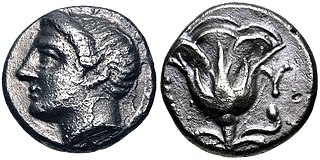
Memnon of Rhodes was a prominent Rhodian Greek commander in the service of the Persian Achaemenid Empire. Related to the Persian aristocracy by the marriage of his sister to the satrap Artabazus II, together with his brother Mentor he served the Persian king for most of his life, and played an important role during the invasion of Alexander the Great and the decades before that.

Steven Pressfield is an American author of historical fiction, non-fiction, and screenplays.

Alexander the Great is a CinemaScope and Technicolor 1956 epic historical drama film about the life of Macedonian general and king Alexander the Great written, produced and directed by Robert Rossen. Filmed in Spain, it was released by United Artists and stars Richard Burton as Alexander along with a large ensemble cast. Italian composer Mario Nascimbene contributed the film score.
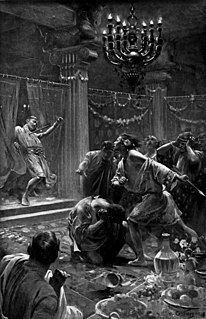
Cleitus the Black, was an officer of the Macedonian army led by Alexander the Great. He saved Alexander's life at the Battle of the Granicus in 334 BC and was killed by him in a drunken quarrel six years later. Cleitus was the son of Dropidas and brother of Alexander's nurse, Lanike. He would be given the epithet 'the Black' to distinguish him from Cleitus the White.
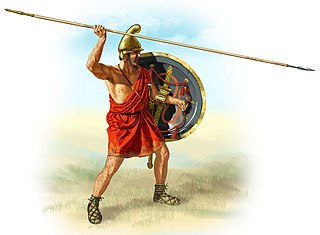
The army of the Kingdom of Macedon was among the greatest military forces of the ancient world. It was created and made formidable by King Philip II of Macedon; previously the army of Macedon had been of little account in the politics of the Greek world, and Macedonia had been regarded as a second-rate power.
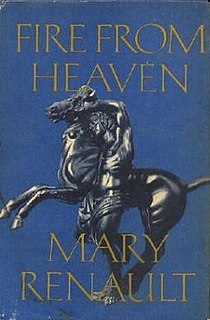
Fire from Heaven is a 1969 historical novel by Mary Renault about the childhood and youth of Alexander the Great. It reportedly was a major inspiration for the Oliver Stone film Alexander. The book was nominated for the “Lost Man Booker Prize” of 1970, "a contest delayed by 40 years because a reshuffling of the fledgeling competition’s rules", but lost out to Troubles by J. G. Farrell.

Gates of Fire is a 1998 historical fiction novel by Steven Pressfield that recounts the Battle of Thermopylae through Xeones, a perioikos born in Astakos, and one of only three Greek survivors of the battle.

Alexander the Great's accomplishments and legacy have been preserved and depicted in many ways. Alexander has figured in works of both "high" and popular culture from his own era to the modern day. Some of these are highly fictionalized accounts, such as the Alexander Romance.

The Afghan Campaign is a historical novel by the American writer Steven Pressfield. It was first published in 2006 by Doubleday. It is the story of Alexander the Great's invasion of the Afghan kingdoms in 330 BC through the eyes of Matthias, a young soldier from Macedonia, who narrates the adventures of the Macedonian army against the Eastern warriors. Matthias fights for Alexander the Great's infantry confronting ferocious people who, determined to defend their homeland, follow tough war methods.

Porus is a historical drama television series based on the Battle of the Hydaspes, visualizing the lives of Indian warrior and ruler Porus, King of the Paurava Kingdom and Alexander the Great, King of Macedonia. It aired from 27 November 2017 till 13 November 2018 on Sony Entertainment Television. Another historical drama Chandragupta Maurya replaced it.

A Man at Arms is a historical novel by the American writer Steven Pressfield. It was first published on March 2, 2021 by W.W. Norton & Company. It is Pressfield's first novel taking place in the ancient world since The Afghan Campaign, published in 2006.



















